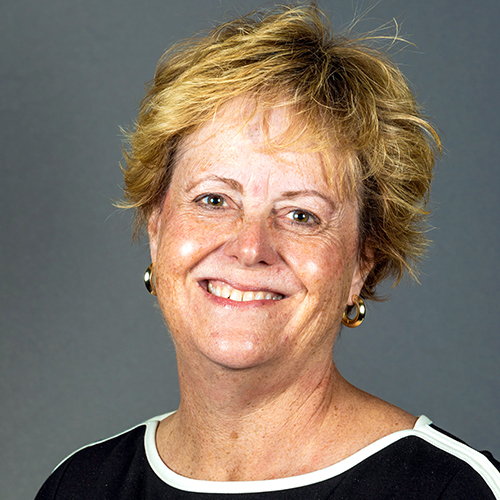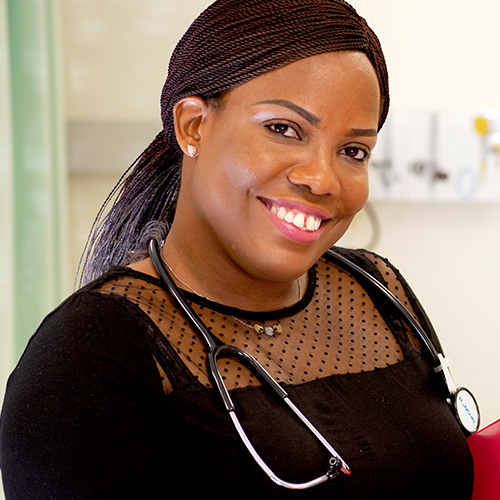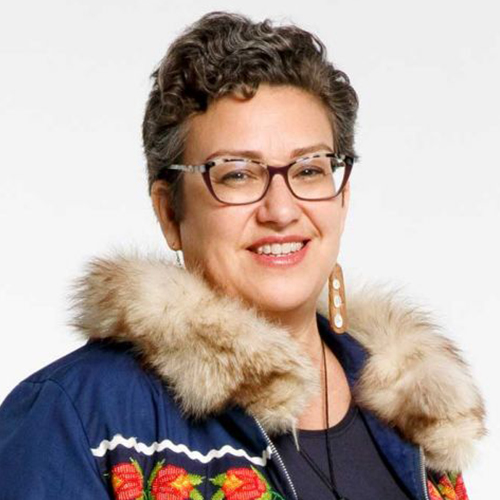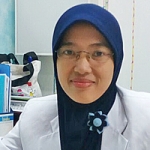 IBCLC Detailed Content Outline: Psychology, Sociology, and Anthropology Focused CERPs - Section V
IBCLC Detailed Content Outline: Psychology, Sociology, and Anthropology Focused CERPs - Section V
Access CERPs on Psychology, Sociology, and Anthropology for the IBCLC Detailed Content Outline recertification requirements. Enjoy convenient on-demand viewing of the latest Psychology, Sociology, and Anthropology focused IBCLC CERPs at your own pace.
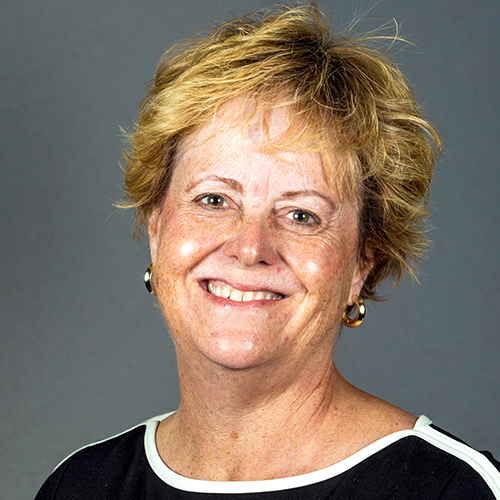

Gail A. Bagwell, DNP, APRN, CNS works at Nationwide Children's Hospital as the CNS of Perinatal Outreach and clinical instructor of practice at the Ohio State University College of Nursing. In her role she works with the healthcare providers caring for neonates and provides education to healthcare providers on the well-newborn as well as care of the sick and premature newborn and serves as a resource on neonatal and quality improvement initiatives. Gail is a member of the National Association of Neonatal Nurses (NANN) and currently the Immediate Past President of the organization. She is also a member of the Central Ohio Association of Neonatal Nurses, American Nurses Association, Ohio Nurse’s Association, Association of Women’s Health and Neonatal Nursing, Academy of Neonatal Nursing, National Association of Clinical Nurse Specialists, Sigma Theta Tau and a Fellow in the American Academy of Nursing. Gail's interests are neonatal abstinence syndrome, breastfeeding, safe sleep, newborn resuscitation and stabilization and parent transition. Gail is a published author of book chapters in all six editions of the Kenner’s ""Comprehensive Neonatal Care"" textbook, the Encyclopedia of Child and Adolescent Development, Neonatal Nursing Care Handbook, editor of the NANN Guideline for Newborn Safe Sleep and multiple journal articles.
Sleep related deaths are the number one cause of infant deaths in the United States, with neonates that have been in a NICU being at a higher risk. In order to combat this problem, the American Academy of Pediatrics (AAP) in the early 1990's began publishing recommendations on how to prevent sleep related deaths in healthy term infants. This effort has led to a decrease in infant sleep related deaths, but confusion remains on when a premature or convalescing neonate be transitioned to a safe sleep environment in the NICU. This presentation will review the different types of sleep related deaths in infants, most current theory of cause of SIDS, review the myths of safe sleep and give guidance to the NICU nurse on how to implement safe sleep in their unit.
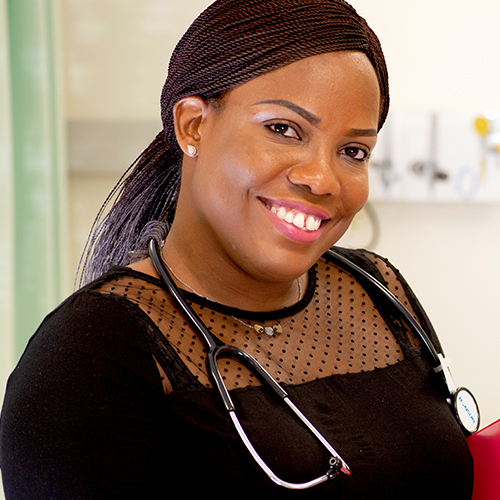
Improving the Outcomes for Women Who Develop Preeclampsia: What Can the Midwife Do?

Isabella is a Ph.D. candidate in the College of Nursing and Midwifery at Charles Darwin University in Australia. She has over 12 years’ experience as a midwife and has also been an educator and researcher in her home country Ghana. She holds a bachelor’s degree in nursing and a master’s in nursing from the University of Cape Coast in Ghana. Isabella is a foundation fellow of the Ghana College of Nurses and Midwives and a member of the Ghana Registered Midwives Association. Isabella is currently undertaking her PhD focusing on improving midwifery care for women who develop preeclampsia in Ghana. She loves to engage in advocacy and is currently a member of Action on Preeclampsia Ghana (APEC-GH), the sole advocacy group concerned with preeclampsia in Ghana. She is a member of the APEC newsletter committee and occasionally facilitates their online webinars for pregnant women, their families, and midwives.
Pre-eclampsia, a complex hypertensive disorder of pregnancy is the second leading cause of global maternal mortality affecting about 8% of pregnancies. Although there are more positive outcomes for women who develop pre-eclampsia in Europe, North America and Australia, there are far more devastating consequences in Low- and Middle-Income Countries (LMIC’s). To improve the outcomes and ultimately achieve the Sustainable Development Goals (SDG’s), effective care is recommended for all women who develop pre-eclampsia, and this should be based on high quality guidelines to facilitate prompt identification and management. As front-line maternity service providers, midwives are instrumental in reducing maternal and neonatal deaths from all complications including pre-eclampsia. Across the continuum of care, midwives have the potential to save over 30% of women who develop pre-eclampsia and eclampsia. Depending on the setting, midwives may assess, diagnose, initiate, and coordinate care for women who develop pre-eclampsia within regulated practice frameworks and in agreement with international practice standards. This presentation will highlight the burden of pre-eclampsia and discuss the current care recommendations during the antenatal, intrapartum, and postpartum periods. Practical application strategies in LMIC’s will be emphasized in the context of WHO’s quality care framework.

View Details / Enroll
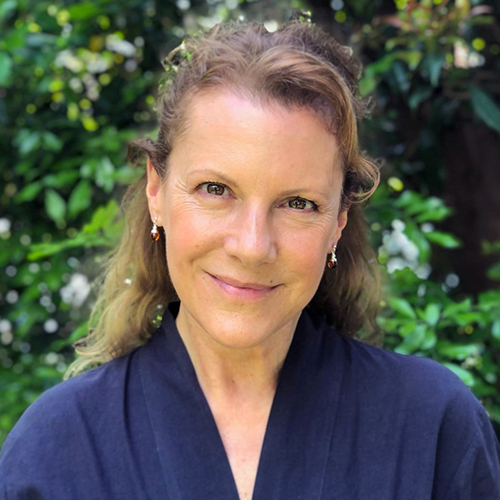
Including Fathers and Partners to Support Perinatal Mental Health and Marriages

With over 25 years’ experience as a relationship counsellor, parents’ group facilitator, mental health educator, partner and mum, Elly Taylor has become an internationally known parenthood preparation and perinatal relationship expert and the award-winning author of Becoming Us. Elly’s passion is preparing parents for a happy and healthy family—at any stage in their parenthood journey, and especially in a challenging world. Her Becoming Us approach includes fathers and partners in all aspects of pregnancy, birth and beyond, harnesses the attachment bond between couples to stabilise them through the life changes and challenges of parenthood and links both parents into community services to support the mental, emotional and relational wellbeing of the whole family.
Elly has served as an advisor for numerous university research projects and her ground-breaking Becoming Us developmental framework has now become a comprehensive multi-disciplinary education and professional training and courses for parents. In a full circle moment, Elly recently trained midwives, allied health and therapy professionals in her local community and now Becoming Us Nest Building Sessions are preparing expectant parents in the hospitals where her children were born. Elly lives in Sydney, Australia with her firefighter husband, their three kidults and an abundance of pets.
Topic: Communication and Conflict - How Connection Supports Both - [View Abstract]
Topic: Including Fathers and Partners to Support Perinatal Mental Health and Marriages - [View Abstract]
"The “transition” into parenthood is supposed to be a time of joy, love and wonder, and yet research paints a very different picture: currently 1 in 3 mothers and 1 in 5 fathers suffer from anxiety or depression during the perinatal period. You might also be shocked to know that 92% of couples report increased conflict and 67% a decline in relationship satisfaction in the first few years of family.
And referring to parenthood as a “transition” is misleading – there are, in fact, multiple transitions for couples to navigate.
Including fathers or partners in pregnancy, birth and the multiple transitions of early parenthood helps to reduce both mothers' and fathers' risks for anxiety, depression and relationship problems and supports both parents' mental, emotional and relationship health, so the whole family can thrive. In this presentation, practitioners will learn simple and easy ways to include fathers and partners, even if they’re not in the room, and discover how small things can make a big difference to a family’s future.
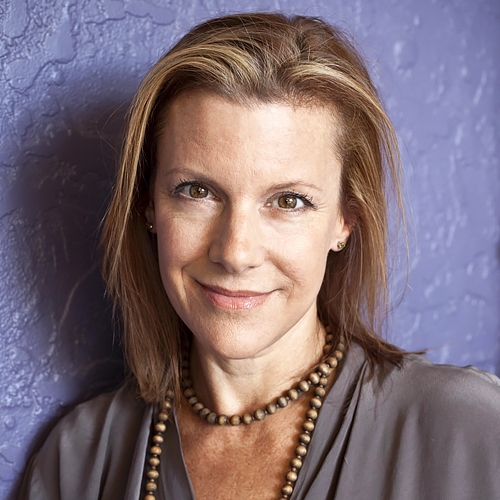
View Details / Enroll
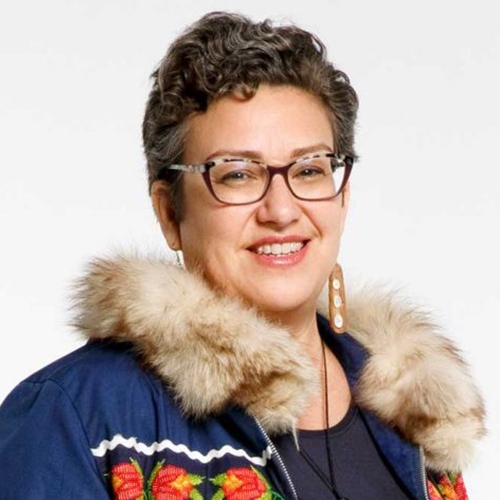
Indigenous Midwifery in Canada: A Primer for Improving Health and Well-Being

Dr. Karen Lawford (Ph.D., R.M., A.M.) is an Assistant Professor in the Department of Gender Studies at Queen’s University and an Adjunct Research Professor in the School of Indigenous and Canadian Studies at Carleton University. She is a member of Lac Seul First Nation
She is the first registered midwife and Indigenous midwife in Canada to obtain a doctoral degree and hold a university appointment. She advocates for maternity care that allows community members to give birth in their communities and on the land, and has explored the resiliency and resistance of women evacuated from their communities for birth. She also conducts research that examines the leadership of Indigenous women and Two Spirit people within health. She is a founding member of the National Aboriginal Council of Midwives.
Dr. Lawford is a 2020 Indspire Laureate in the category of Health. She also serves as a Senator for Queen’s University.
Since the formation of Canada in 1867, the Canadian government has systematically imposed a Euro-Western biomedical model of maternity care on Indigenous peoples. Colonialism and white supremacy rationalized the development of the Indian Residential School system with Christian organizations in attempts to “kill the Indian in the child.” Government goals were to civilize and assimilate Indigenous Peoples into a generic Canadian identity for the sake of nation building and colonial expansion. Eugenic ideologies underpinned the reduction of Indigenous populations through the forced, coercive, and covert sterilization of Indigenous women and girls. In Canada, two provinces had a Sexual Sterilization Act (Alberta and British Columbia), although it was practiced throughout the country. In the area of maternity care, Canadian healthcare systems have consistently failed Indigenous people and their children as evidenced by having highest IMR in Canada. Despite this, Indigenous midwifery and improved child and maternal health for Indigenous people, families, and communities can be realized. A return of birth to the land, recognition of Indigenous women’s and Two Spirit leadership in the provision of excellent culturally-informed, anti-colonial maternity care will contribute to the improved health and wellbeing of Indigenous Peoples.

View Details / Enroll

Infant and Young Child Feeding in Emergencies: Background, Best Practice, and What You Can Do

Karleen Gribble (BRurSc, PhD) is an Adjunct Associate Professor in the School of Nursing and Midwifery at Western Sydney University.
Her interests include infant and young child feeding in emergencies, marketing of breastmilk substitutes, parenting and care of maltreated children, child-caregiver and caregiver-child attachment, adoption reform, and treatment of infants and young children within the child protection, immigration detention, and criminal justice systems.
She has published research on these subjects in peer-reviewed journals, provided media commentary, contributed to government enquiries, provided expert opinion for courts, and engaged in training of health professionals, social workers, and humanitarian workers on these subjects.
Karleen is an Australian Breastfeeding Association Community Educator and Breastfeeding Counsellor. Since 2010 she has been a member of the Infant and Young Child Feeding in Emergencies Core Group and has been at the forefront of the development of policy, training and research in the area of infant and young child feeding in emergencies.
Topic: Infant and Young Child Feeding in Emergencies: Background, Best Practice, and What You Can Do - [View Abstract]
Topic: Milk Sharing: Comparative Risks and Biomedical Ethics - [View Abstract]
In any emergency, infants and young children are particularly vulnerable. Providing appropriate aid is vital to ensure that children have the best chance of surviving. This presentation will describe why infants and young children are at increased risk during times of crisis and outline how aid can support, or sometimes undermine the health of infants and young children. Detail on instruments to support appropriate infant and young child feeding in emergencies will be provided, along with information to assist participants in advocating for appropriate infant and young child feeding in emergencies in their context.

View Details / Enroll

View Details / Enroll
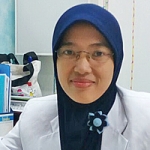

I am a wife and mother of two breastfed children. I was a general practitioner and am currently more focused on helping mothers to breastfeed. I work at Puri Cinere Hospital and Kemang Medical Care Women and Children as a lactation counselor. I currently on leave due to accompany my husband school in United State for his PhD programs. Since 2009, I've been helping mothers who have difficulties breastfeeding. It is a delight when we meet during tough times, then met again once their breastfed child are big and smart, and most importantly successfully breastfed. My desire is to help mothers to breastfed wherever I live in this world.
Good doctor–patient communication is essential for positive health care outcomes. Ideal doctor–patient communication generally is reflected in a partnership communication style. However, in Southeast Asian settings, we often see a more one-way style with little input from the patient.
Helpline services is breaking the ice, and is considered a new option modality for patients in Indonesia. The ease in contacting medical professionals through phone and text messages seems more comfortable, personal and inexpensive.
Breastfeeding support via a helpline helps mother to feel reassured, confident and more determined to continue breastfeeding, and in majority of occasions resolves their particular concerns.
Lactation Clinic in Puri Cinere Hospital, Depok, West Java, Indonesia was established in August 2011 and operated a helpline since the beginning of its establishment. Helpline service is open 24 hours daily, through phone, text messages, whatsapp, or blackberry messenger directly to doctors who are also breastfeeding counselors. There are six doctors who take turns every month to receive calls and reply to messages. Helpline numbers are distributed to patients during post natal rounds or at patients doctors appointments in lactation clinic.
A longitudinal study conducted in March to December 2014 shows 202 helpline cases in 9 months. There were 29 cases (14%) questioning EBM handling, 24 cases (12%) asking about complementary feeding, 19 cases (9%) of infant stool, 19 cases (9%) medication and mother's milk, 15 cases (7%) frenotomy after care and other various problems. 63% cases were successful managed via helpline, and 37% cases were referred to the Lactation Clinic to get further help.
There were many cases resolved through helpline calls and messages. High success rate of helpline management shows that helpline program is effective to help mothers and resolved their particular concerns; especially in Indonesia.

View Details / Enroll

Leadership Skills in Lactation: Make Extraordinary Things Happen

Paulina is the mother of three multicultural Latino children and Project Director for Lifespan Local. Paulina earned her BS in Psychology from the Pennsylvania State University, a MS in Organizational leadership from the University of Denver and is completing her PhD in Health and Behavioral Sciences at the University of Colorado - Denver. Paulina has over 18 years of experience working with families with young children. As a Maternal Child Health specialist for Jefferson County Public Health, she developed a NICU follow-up home visitation program and the pediatric emergency preparedness plan, co-founded and coordinated the Conectando Network (former Adelante Jeffco), established community navigation and lactation support groups focused on the Latino Spanish speaking community, and lead other initiatives to support leadership and partnerships among communities and organizations. During the COVID-19 pandemic, she managed the new program Whole Community Inclusion to ensure the pandemic response and recovery implementation included health equity practices that recognize the needs and the strengths of priority populations in the county. Her areas of current work include promoting perinatal and infant mental health along the continuum of care; building community capacity to navigate health and education systems; facilitating organizational change to embrace linguistic and culturally responsive practices; and establishing community-placed participatory programs to strengthen communities. She likes to be with people, learn from and with others, and connect passions for meaningful work.
Topic: From the NICU to the home: mother’s experiences - [View Abstract]
Topic: Leadership Skills in Lactation: Make Extraordinary Things Happen - [View Abstract]
Topic: Liderazgo en Lactancia - Para Alcanzar Metas Extraordinarias - [View Abstract]
Topic: Nursing A Preemie, Perspectives For Lactation Supporters and Professionals - [View Abstract]
Many of us come to work in breastfeeding envisioning a world where mothers and babies can breastfeed without barriers; however, we quickly learn that breastfeeding challenges go beyond latching and positioning.
To effectively support a breastfeeding/chestfeeding family, we have to support the parents, the extended family, the primary care provider, the workplace culture, the childcare, and the community; in summary, supporting one dyad can be an intervention to the whole social system. Indeed, breastfeeding advocacy is about building systems and consistently leading cultural changes to more deeply reinforce human feeding as the norm.
Kouzes and Posner (2012) state: “if you want to have a significant impact on people, on organizations, and oncommunities, you’d be wise to invest in learning the behaviors that enable you to become the very best leader you can.” With that in mind, lactation consultants and lactation advocates would benefit by learning leadership behaviors and skills that will support their efforts towards cultural change, inspire shared visions, challenge processes, becoming strategic advisors, and leading from the inside out.
Lactation leaders would benefit by being able to align values and beliefs with actions and strategies to promote breastfeeding as part of whole community development and as a public health strategy. In that way, lactation has a presence in early childhood initiatives, maternal and infant health, mental health programs, and any health, social, educational intervention.
Want to normalize lactation? Join this interactive session and become the leader who can make extraordinary lactation things happen in your community.

Liderazgo en Lactancia - Para Alcanzar Metas Extraordinarias

Paulina is the mother of three multicultural Latino children and Project Director for Lifespan Local. Paulina earned her BS in Psychology from the Pennsylvania State University, a MS in Organizational leadership from the University of Denver and is completing her PhD in Health and Behavioral Sciences at the University of Colorado - Denver. Paulina has over 18 years of experience working with families with young children. As a Maternal Child Health specialist for Jefferson County Public Health, she developed a NICU follow-up home visitation program and the pediatric emergency preparedness plan, co-founded and coordinated the Conectando Network (former Adelante Jeffco), established community navigation and lactation support groups focused on the Latino Spanish speaking community, and lead other initiatives to support leadership and partnerships among communities and organizations. During the COVID-19 pandemic, she managed the new program Whole Community Inclusion to ensure the pandemic response and recovery implementation included health equity practices that recognize the needs and the strengths of priority populations in the county. Her areas of current work include promoting perinatal and infant mental health along the continuum of care; building community capacity to navigate health and education systems; facilitating organizational change to embrace linguistic and culturally responsive practices; and establishing community-placed participatory programs to strengthen communities. She likes to be with people, learn from and with others, and connect passions for meaningful work.
Topic: From the NICU to the home: mother’s experiences - [View Abstract]
Topic: Leadership Skills in Lactation: Make Extraordinary Things Happen - [View Abstract]
Topic: Liderazgo en Lactancia - Para Alcanzar Metas Extraordinarias - [View Abstract]
Topic: Nursing A Preemie, Perspectives For Lactation Supporters and Professionals - [View Abstract]
Muchos de nosotros comenzamos a trabajar en lactancia visualizando un mundo donde las madres y los bebés pueden amamantar sin barreras; sin embargo, aprendemos rápidamente que los desafíos de la lactancia materna van más allá del prendimiento y el posicionamiento.
Para apoyar efectivamente a una familia que amamanta, debemos apoyar a los padres, a la familia extendida, al doctor, a la cultura del lugar de trabajo, a la guardería y a la comunidad; en resumen, apoyar a una familia se transforma en la oportunidad para afectar todo el sistema social. De hecho, promover la lactancia se trata de construir sistemas y liderar cambios culturales para reforzar más profundamente la alimentación con leche humana como la norma.
Kouzes y Posner (2012) afirman: "si desea tener un impacto significativo en las personas, en las organizaciones y en las comunidades, lo más recomendable sería invertir en aprender comportamientos que le permitan convertirse en el mejor líder que pueda ser". Con esto en mente, los consultores y asesores de lactancia se beneficiarían aprendiendo conductas de liderazgo y habilidades que apoyarán sus esfuerzos hacia el cambio cultural, inspirarán visiones compartidas, desafiarán procesos, se convertirán en asesores estratégicos y liderarán desde adentro hacia afuera.
Los líderes en el mundo de la lactancia se beneficiarían de poder alinear valores y motivaciones con acciones y estrategias para promover la lactancia como parte del desarrollo de toda la comunidad y como una estrategia de salud pública. De esta forma, la lactancia tiene presencia en las iniciativas para la primera infancia, la salud materna e infantil, los programas de salud mental y cualquier intervención sanitaria, social y educativa.
¿Quiere normalizar la lactancia? Participe de esta presentación y aprenda a liderar iniciativas de lactancia extraordinarias en su comunidad.
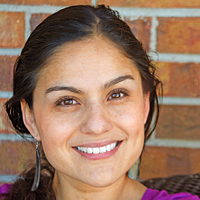
View Details / Enroll

Lies and Lactation Cookies: Raising the Bar for Breastfeeding Support Groups Online

Amy Barron Smolinski holds an MA from Union Institute and University, where her thesis explored re-emerging Sacred Feminine manifestations in the lives of contemporary women. She is the Executive Director of Mom2Mom Global, a network of breastfeeding peer support, education, and advocacy for military families. She works with breastfeeding dyads in a variety of settings, from inpatient postpartum and NICU to home visits, telephone, and online consulting as an Advanced Lactation Consultant and Certified Lactation Counselor. Supporting breastfeeding families has shown her how each parent’s breastfeeding journey with each of her children is a reclamation of her connection to her inner wisdom and power. Amy is an actress, director, and professional voice artist in Germany, where she resides with her husband and four sons, all of whom breastfed to self-weaning.
Topic: When Tears Flow and Milk Doesn’t: Support Through Breastfeeding Grief - [View Abstract]
Millennial parents live and learn on social media. Yet, much of the information available online, even through lactation “support” groups, is outdated, inaccurate, and counterproductive. Millennial parents, particularly mothers, also place pressure on themselves to get parenting “right,” which leads to a complex and dangerous blend of anxiety, guilt, and fear surrounding all of their parenting decisions. Facebook closed groups can be an effective platform for creating a virtual breastfeeding support group, but just as in real life, the groups must be properly facilitated. This presentation offers step by step guidance to creating, setting up, and maintaining a Facebook breastfeeding support group. We’ll deconstruct common controversies that occur within social media, and analyze conflict management strategies to create safe spaces online.

View Details / Enroll

View Details / Enroll

Love Makes A Family: Supporting LGBTQIA+ and Gender Non-Conforming Families

Jeanette McCulloch, IBCLC, is the co-founder of BirthSwell, spreading birth (and breastfeeding and MCH) genius, changing policy, and building businesses and organizations using strategic digital communications. With more than 20 years experience in communications and women’s health advocacy, she provides consultation to local, statewide, national, and international birth and breastfeeding organizations and small businesses. She has published research and spoken at national conferences on reaching millennial parents online. She is passionate about health equity and ensuring that all families have access to high-quality, culturally sensitive birth and lactation care. Jeanette unplugs with her partner and two children while splashing around in the gorges of her hometown, Ithaca, NY.
As lactation professionals and supporters, we will encounter LGBTQIA+ and gender non-conforming families in health care settings, private visits and support groups. Deepen your knowledge of the unique needs of queer, trans and gender-non conforming parents during lactation. This session allows participants to explore our awareness, ask questions in a safe space and develop the tools to meet all families where they are.

View Details / Enroll

View Details / Enroll



